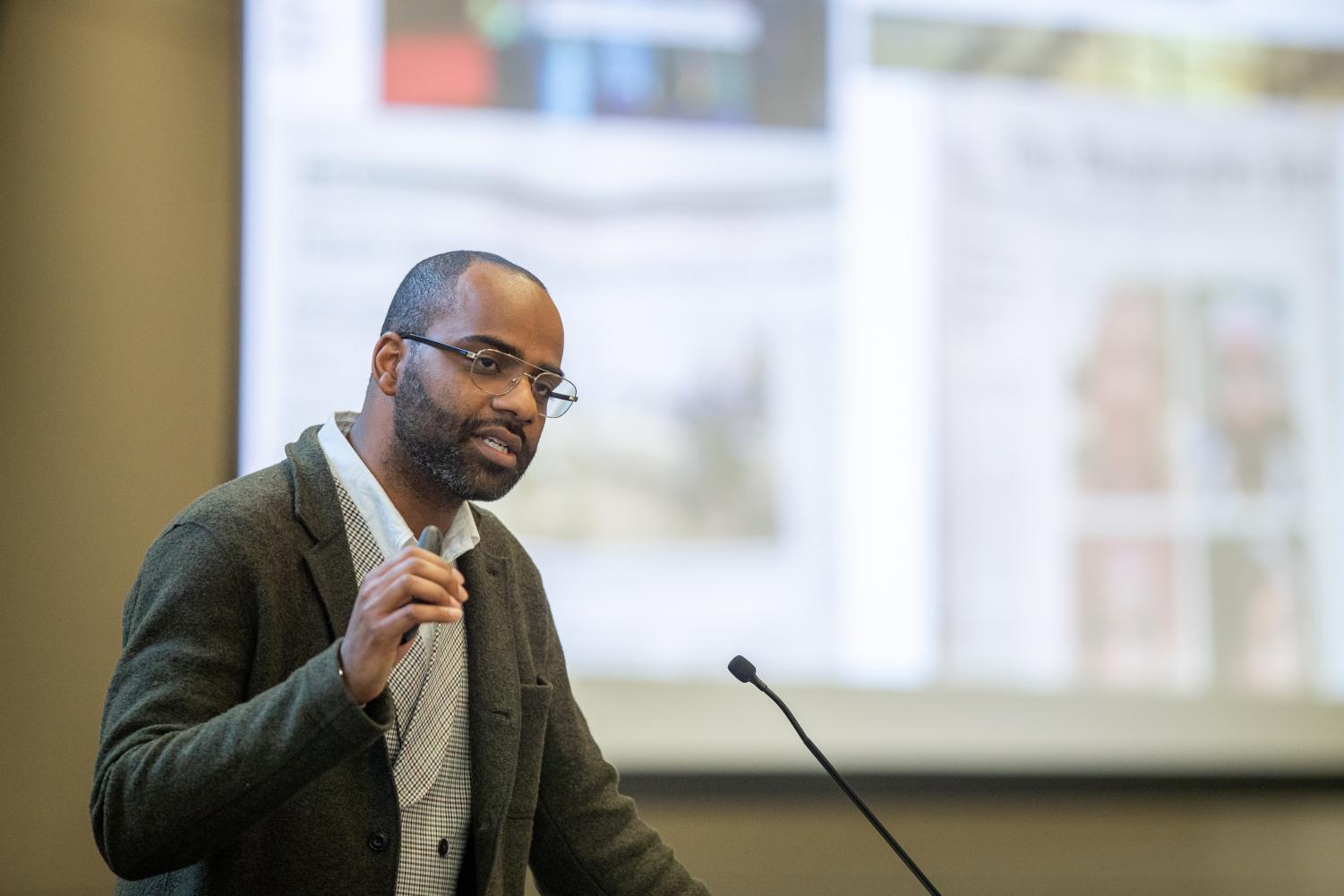Devastation, hope amidst changing climate
Marqus Cole delivers speech on climate at Tuesday chapel
March 8, 2023

In an effort to gather public awareness of climate change, Seattle Pacific University’s University Ministries invited climate and racial justice advocate Marqus Cole as a guest speaker for last Tuesday’s chapel. In his hour on stage, Cole shared his insights on people’s impact on the environment and how to maintain hope despite the danger pollution presents.
Climate change has proven itself to be one of the greatest emerging threats of the twenty-first century, and is expected to cause a massively negative impact to billions across the globe, especially in poorer and industrializing regions that lack the means to sustain themselves. For many, this potential for negative consequences is becoming more and more real every day as attempts to mitigate climate change prove themselves unable to fully prevent the damage caused by pollution.
“For me, what got me into caring for creation was realizing and understanding that there was a common nexus for justice, be it racial or environmental,” Cole said. “I realized this when I read that the lack of trees in urban areas caused real issues for the homeless, poor or disabled.”
To Cole, hopelessness is an understandable reaction to the climate crisis but not a useful one. Though grief is a natural result of catastrophe, Cole does not find it healthy in the absence of hope or action.
“Eco-grief is the very real feeling that many people have when they consider the extent of the problem and the ramifications they’ve had on the world,” Cole said. “Eco-grief is something you experience or live, but it doesn’t speak to your identity. Grief taken to God can become lament, and God’s response to lament is hope. This is something unique to Christianity – a resurrection hope. Too many people fighting the crisis have grief but not hope.”
Despite the importance of hope, the climate is a very real issue, and one that could have a large impact on everyone’s health.
“When we avert our eyes as chemicals pollute our water, when we go about our day while smog chokes out asthmatic lungs, when we factory farm livestock, clear-cut forests and cause suffering and harm, this isn’t bringing life, but death,” Cole said.
In the face of injustice, there are many figures one can blame, and to third year global development major Maria Weya, large corporations shoulder most of the responsibility.
“I think that many big companies are impacting the global climate. While some businesses are trying to minimize their carbon footprint, many others are making everything worse. The weather is getting less predictable, and I believe climate change is behind this,” Weya said. “We’re producing too many unnecessary things, and it’s not good for nature.”
From Cole’s perspective, silence about these issues is detrimental.
“Our silence in the face of injustice testifies against us,” Cole said. “We need not speak on everything everywhere, but if we speak on nothing nowhere, we’ve said all we need to say and bear the name in vain.”
To many people, including fifth year English major Joyce Baker, the individual’s potential impact on the climate is minimal relative to those of larger organizations, who are the real cause of this injustice.
“Climate change is an immense problem. Not to sound like a Twitter user, but I believe it’s on the part of corporations for the most part,” Baker said. “Us regular people can try what we can, but aside from using public transportation, there’s not too much we can do.”
Others, such as third year psychology student Graysen Swanson, do not see climate change as an immediate risk or an immediate bringer of injustice.
“I don’t really have that big of an opinion on it. I know climate change is a problem but not at this moment,” Swanson said. “There are ways to possibly reduce waste, but I’m not sure if some of the solutions, like the proposed ban on gas cars, are good ideas.”
For students wishing to contribute more in the fight against climate injustice, Cole listed three primary steps that one should take.
“I would suggest three actions to students who want to do more. To talk more about it, to listen and learn about it and to become a witness and do something about it,” Cole said. “This can be small in your household, it could be to join the sustainability club or it can be something else.”

























































































